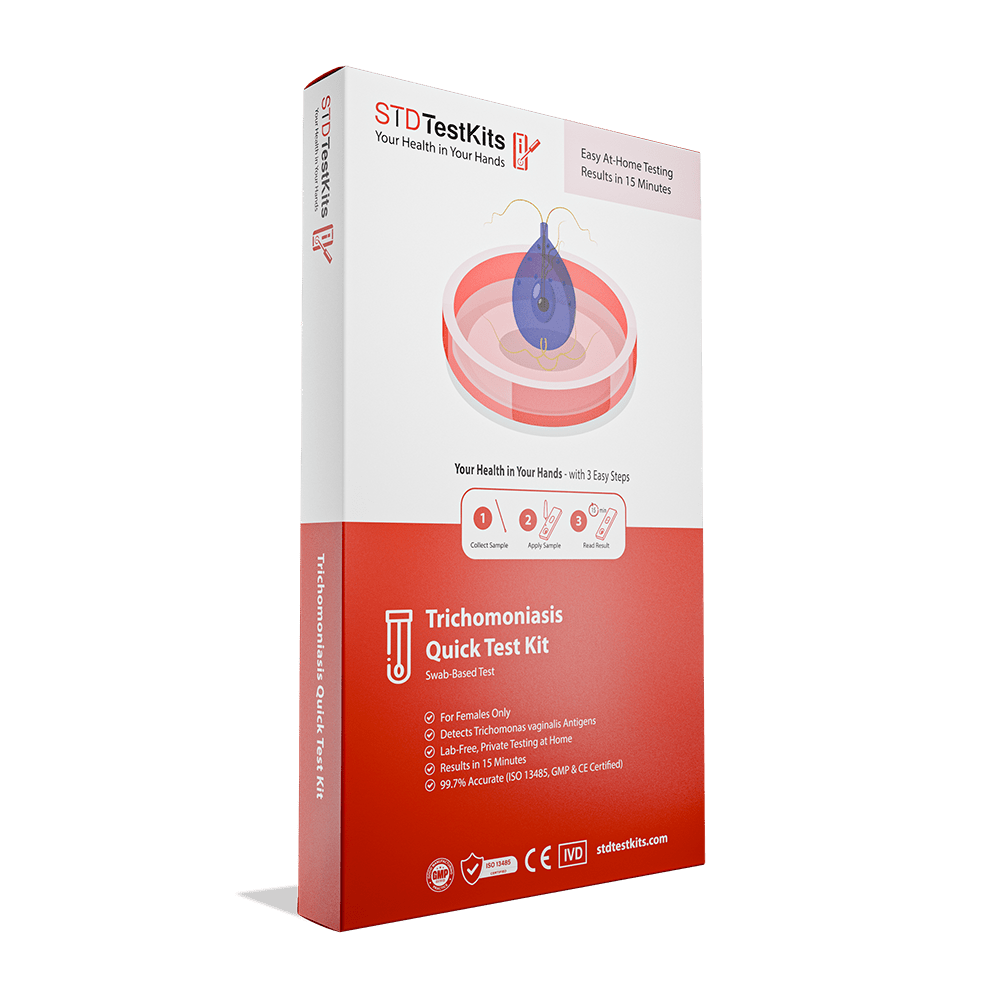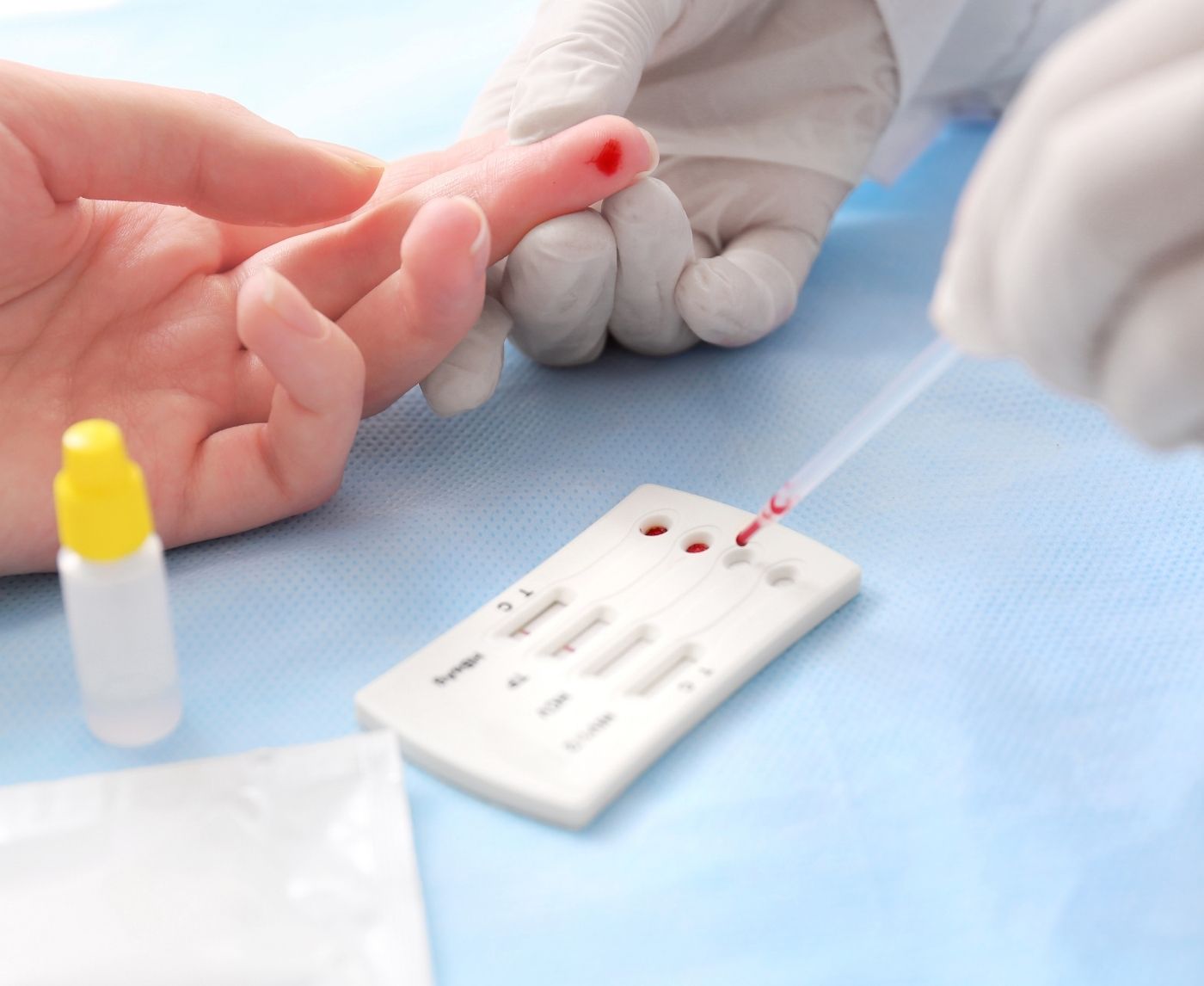Tested Too Soon for HIV? Here’s What That Negative Could Mean
Quick Answer: Yes, you can get trichomoniasis without cheating. Trich can live in the body undetected for weeks, months, or even years, especially without symptoms. Dormancy, missed infections, or prior partners may be the real source.
Why This Article Matters Right Now
If you or your partner just tested positive for trich, and you're both swearing nothing happened, this piece is for you. Trich carries a huge emotional weight. It doesn’t just live in your genitals. It wedges itself into your relationship. The shame. The panic. The silence. And worst of all, the assumption that someone cheated.
But STDs aren’t moral judgments. They’re biological events. And trichomoniasis is particularly tricky. Around 70% of people never show symptoms, and it can remain undetected for months. You can test negative, then positive later. You can carry it from a previous partner and not even know. This isn’t about lies. It’s about timing, biology, and a parasite that doesn’t care about your relationship status.

People are also reading: How (And Why) Gay Men Can Advocate for Better STD Testing
Trichomoniasis 101: The Parasite Behind the Panic
Trichomoniasis is caused by a single-celled parasite called Trichomonas vaginalis. It’s one of the most common, but most misunderstood, STDs in the world. According to the CDC, about 3.7 million people in the U.S. have it, but only 30% show symptoms.
The parasite typically spreads during vaginal sex, though it can survive on damp surfaces for a short time (like sex toys or wet towels). It's far less likely to be transmitted through oral or anal sex. Once inside the body, it doesn’t always cause symptoms right away. That’s where the confusion, and the accusations, start.
Figure 1. Core facts about trichomoniasis and its behavior in the body.
How Long Can Trichomoniasis Stay Dormant?
This is where it gets real. Trich can stay in the body silently for weeks, months, or even longer. There’s no reliable way to determine exactly when or from whom you got it. That makes accusations almost impossible to prove, and frequently wrong.
In clinical studies, trichomoniasis has remained viable in people for several months without symptoms, especially in men. It may clear on its own, but it can also persist and become a hidden infection passed unknowingly between partners. So yes, you could test positive now, even if your last partner was a year ago.
Figure 2. Timeline of trichomoniasis infection and dormancy phases.
This timeline makes it clear: just because someone tests positive now doesn’t mean they got it recently. One study even found cases where trich was detected after six months without symptoms.
How Can One Partner Be Positive and the Other Negative?
This is one of the most emotionally brutal scenarios: you test positive for trichomoniasis, but your partner doesn’t. Suddenly it feels like a case is closed, and you’re the guilty one. But the science tells a different story.
First, trich doesn’t always transmit between partners. Studies estimate a 60–70% transmission rate from an infected female to a male partner, and even lower in the other direction. So it’s entirely possible for one person to carry it and never pass it on, even after repeated sex.
Second, testing accuracy varies depending on the method. A man who uses an outdated urine or swab test might show negative, even if he’s carrying the parasite. A woman who uses a high-sensitivity NAAT test may detect it even in low levels. That mismatch can fuel a lot of unnecessary suspicion.
Research from the Journal of Clinical Microbiology has shown that some older trich tests miss up to 30% of infections in men. That’s not deception, that’s a diagnostic gap.
False Negatives and Mistimed Testing
Even the best tests aren’t perfect. If you get tested too soon after exposure, especially in the first 4 to 7 days, your body may not have enough of the parasite to detect. This is why false negatives happen.
Let’s break it down:
- Tested too early (0–3 days): Very high risk of false negative
- Tested during incubation (4–10 days): Variable results depending on test sensitivity
- Tested after 14+ days: Highest accuracy window for most tests
If you got tested and it came back negative, but symptoms are creeping in or your partner tested positive, it’s worth repeating the test after two weeks. Many home kits and clinics offer re-testing packages for this exact reason.
False negatives aren’t lies. They’re technical limitations. And they can wreck relationships if you don’t know about them.
“I Haven’t Slept With Anyone in Months, How Did I Get This?”
This is one of the most common and devastating questions people ask when they get a surprise diagnosis. And here’s the answer that rarely gets said loud enough: STDs don’t operate on our emotional timelines.
Just because your last sexual encounter was months ago doesn’t mean the infection wasn’t there all along. Trich can live undetected, especially in people with vaginas, for a long time. You might have picked it up from a partner months ago who had no idea they were carrying it.
Plus, it’s possible your infection got missed during previous testing. Not all trich tests are created equal. If you tested during the dormancy phase or used a test with lower sensitivity, it could’ve slipped past undetected.
None of this means anyone cheated. It means this parasite doesn’t follow romantic logic. It follows biology.

People are also reading: How to Know If That Eye Infection Might Actually Be an STD
Your Next Step: Talk, Test, and Try Again
Getting a positive STD result feels like a betrayal, even when no one actually did anything wrong. But here’s the path forward:
Start with a calm conversation. Share what you’ve learned about trichomoniasis dormancy, testing errors, and asymptomatic transmission. Offer to retest, and encourage your partner to do the same, with a high-sensitivity NAAT test or rapid antigen option.
This isn’t about catching someone in a lie. It’s about protecting your health and understanding how sneaky some infections can be. You can even test together using a discreet at-home kit.
If your head keeps spinning, peace of mind is one test away. Order a private at-home trich test here, fast results, zero judgment.
When to Retest for Trichomoniasis
If you’ve been treated for trich, or suspect your first test was too early, it’s smart to schedule a follow-up. The CDC recommends retesting three months after treatment, even if you have no symptoms. Why? Because reinfection is common, and treatment doesn’t guarantee your partner was cleared too.
If you tested during a high-risk exposure window or you’re unsure of the test’s accuracy, retest after two to three weeks. This gives your body time to build detectable levels of the parasite.
Here’s what typical retesting timelines look like:
Figure 3. Retesting timelines depending on exposure, symptoms, and treatment status.
Retesting isn’t about paranoia, it’s about precision. You’re not overthinking. You’re being smart.
Trich and Pregnancy, Immunosuppression, and Chronic Conditions
If you're pregnant or immunocompromised, trichomoniasis isn't just annoying, it can be dangerous. Trich in pregnancy has been linked to preterm labor and low birth weight. Immunocompromised people may experience longer infections, stronger symptoms, and slower treatment response.
If you fall into either category, talk to your provider about repeat testing, even if you were already treated. Some clinicians recommend combining test types (rapid + NAAT) for added confirmation. And always make sure your partner is treated too, otherwise, it can bounce right back.
Clinical studies confirm that dual treatment of couples drastically lowers recurrence risk.
“I Never Cheated. I Still Got Trich.”
Ty, 28, had been in a monogamous relationship for over a year when his girlfriend tested positive for trichomoniasis. At first, he was furious, he thought she cheated.
“I said some things I regret. I accused her right away. But when I tested negative, it only got worse. She felt like I was calling her a liar.”
They almost broke up over it. But after some digging, Ty found studies showing how often trich is asymptomatic, and how poor older tests are at detecting it in men. He retested using a better kit. This time, it came back positive.
“I felt like trash. She didn’t cheat. I probably gave it to her and never knew I had it.”
They got treated together. Their trust? That took longer to rebuild. But now they test together every 3–6 months, just to stay on the same page. “Testing isn’t a loyalty check,” Ty says. “It’s maintenance.”

People are also reading: My STD Symptoms Vanished. Was I Cured, Or Just Lucky?
FAQs
1. Can you really get trich without cheating?
Yes, and it happens more than you think. Trichomoniasis can hang out in your body quietly for weeks or even months without symptoms. So someone could’ve picked it up from a past partner, had no idea, and passed it on later. That’s not lying, it’s biology being sneaky.
2. Why did I test positive but my partner didn’t?
It’s not always a smoking gun. Men, in particular, are often harder to detect with older tests. Some guys test negative even if they’re carrying the parasite. Add in timing issues and test sensitivity, and boom, you’ve got one positive and one negative. Doesn’t mean either of you cheated.
3. Is it possible I got trich from months ago?
Absolutely. Trich isn’t like food poisoning, it doesn’t show up overnight. It can lie low, with no symptoms, and then show up on a routine test or when your immune system dips. You might’ve had it for a while and just didn’t know.
4. My relationship is monogamous. How else could this happen?
First: take a breath. Monogamous doesn’t mean “medically immune.” The infection could’ve come from a previous relationship, gone undetected, and just now showed up. Or maybe one of you got a false negative earlier. This is a parasite, not a polygraph.
5. What if I took a test and it said negative, but I still have symptoms?
That happens more than we’d like. Testing too early, using a low-sensitivity test, or collecting a weak sample can all lead to a false negative. If your body’s telling you something’s off, trust it, test again with a higher-accuracy method.
6. Can trich cause any real damage if I don’t treat it?
Yes, unfortunately. It can increase your risk of getting or passing HIV, lead to pelvic inflammation, and cause complications if you’re pregnant. The good news? It’s treatable with antibiotics, quick, simple, done.
7. Can I catch trich from a towel or toilet seat?
Technically possible? Sure. Likely? Nope. Trich needs moisture to survive, and while it can live on damp objects briefly, the vast majority of infections happen from vaginal sex or shared sex toys. So let’s not blame the hotel bathroom.
8. How long should I wait to get tested after a risky hookup?
Ideally, wait 1 to 2 weeks for the most accurate trich test results. Testing too early (like within a few days) might give you a false sense of security. And if you do test early? Plan to retest in two weeks just to be safe.
9. I took the meds. Do I really need to retest?
Yes, especially if you’re sexually active with the same partner. People can ping-pong trich back and forth if only one of you gets treated. The CDC says to retest after 3 months, but sooner if symptoms linger or you’re just not sure.
10. Does testing positive for trich mean my partner cheated?
Not necessarily, and not even probably. Trich is a slow, quiet infection. It plays the long game. Unless there’s a clear timeline or confession, it’s best not to make this about blame. Focus on testing, treating, and rebuilding trust if you need to.
You Deserve Answers, Not Accusations
Getting a diagnosis of trichomoniasis can feel like a bomb going off in your head. But it doesn't have to ruin your trust or your peace of mind. STDs don't care about relationship rules. They follow biology, test schedules, and tiny troublemaking.
Don't let confusion lead to a fight. If you need to, get tested again. Be kind when you talk to your partner. And pick tools that keep your information safe and give you clear answers.
Take charge, whether you're scared, confused, or just tired of wondering. You can move forward with confidence with this test kit.
How We Sourced This Article: We combined current CDC guidelines, peer-reviewed research, and narrative case reporting to ensure this guide is medically accurate and emotionally supportive. Around 15 sources were used in total; below are the six most relevant. All links were verified to open in a new tab and lead to trusted sites.
Sources
1. Is Trichomoniasis Always Sexually Transmitted? – Healthline
2. Trichomoniasis: Is It Always Sexually Transmitted? – PMC
3. Trichomoniasis Overview – LA County Public Health
4. Can You Get Trichomoniasis Without Being Sexually Active? – Everlywell
5. CDC Treatment Guidelines – Trichomoniasis
About the Author
Dr. F. David, MD is a board-certified infectious disease specialist focused on STI prevention, diagnosis, and treatment. He blends clinical precision with a no-nonsense, sex-positive approach and is committed to expanding access for readers in both urban and off-grid settings.
Reviewed by: L. Stone, MPH | Last medically reviewed: September 2025
This article is for informational purposes and does not replace medical advice.






